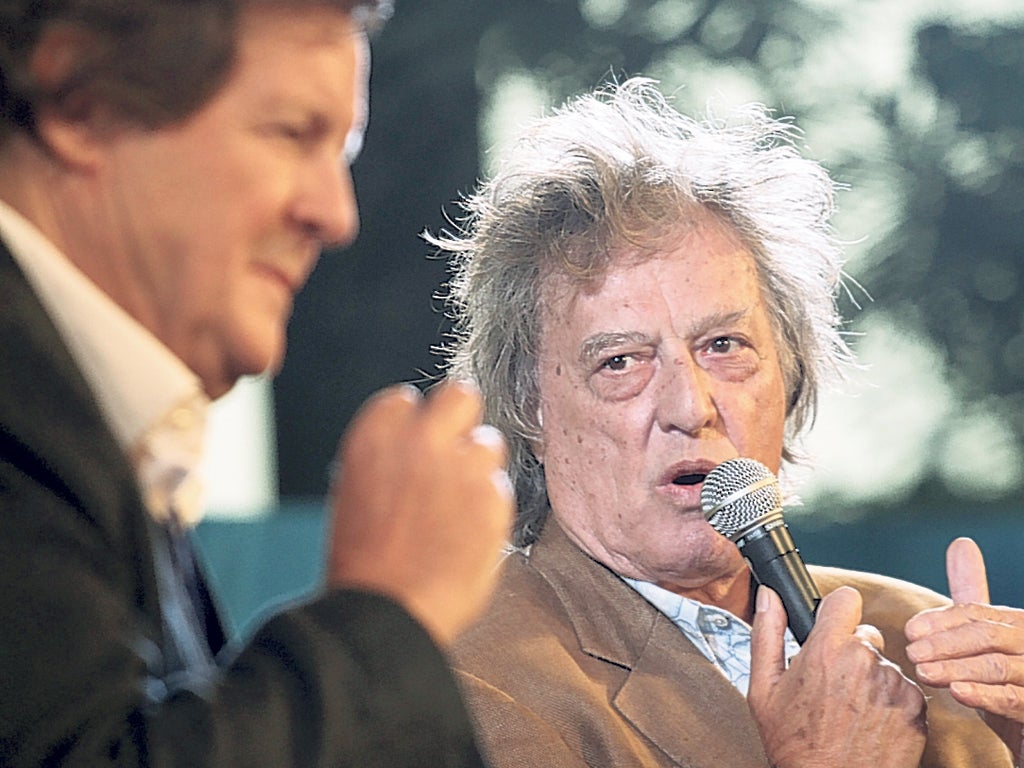David Lister: How can you celebrate great literature while preventing the freedom of expression?


Your support helps us to tell the story
From reproductive rights to climate change to Big Tech, The Independent is on the ground when the story is developing. Whether it's investigating the financials of Elon Musk's pro-Trump PAC or producing our latest documentary, 'The A Word', which shines a light on the American women fighting for reproductive rights, we know how important it is to parse out the facts from the messaging.
At such a critical moment in US history, we need reporters on the ground. Your donation allows us to keep sending journalists to speak to both sides of the story.
The Independent is trusted by Americans across the entire political spectrum. And unlike many other quality news outlets, we choose not to lock Americans out of our reporting and analysis with paywalls. We believe quality journalism should be available to everyone, paid for by those who can afford it.
Your support makes all the difference.The spectre of the most scandalous and depressing episode in recent literary history raised its head this week. Salman Rushdie once again had his safety and his life threatened over his book The Satanic Verses, and was unable to show his face.
It was all horribly reminiscent of the appalling death threat to Rushdie in 1989 and his being taken into hiding, a story I was involved in reporting at the time.
This week, he was meant to be a speaker at the Jaipur literary festival in India, and had to withdraw after the festival organisers admitted they couldn't guarantee his security. As the week progressed, the picture became murkier, with claims that the death threats may not have been real and the authorities may have been wooing Muslim voters in frightening Mr Rushdie off.
But the festival management itself continued to emerge, in my view, as cowardly as it stopped some of Rushdie's fellow Indian authors midstream as they tried to read from The Satanic Verses, which is still banned in India, in support of the novelist.
Where does this leave the eminent British speakers at the festival? For eminent they certainly were. The playwrights Sir Tom Stoppard and Sir David Hare both gave addresses, as did the writer and notable atheist Richard Dawkins.
International literary festivals are very exotic. Next week, Britain's most famous literary gathering, the Hay festival, decamps to Cartagena in Colombia, with speakers being flown first class to the beach resort.
Stoppard, Hare and Dawkins must have been keenly aware of the new Rushdie affair, and presumably they must have wondered how they could show their support. I was not at the festival, so I don't know if they mentioned him in their speeches, though, apparently, reports in the Indian press make no mention of this happening.
But even if they had done so, would a few remarks to a festival audience have been a sufficient expression of disgust? A literary festival that manages to deny free speech – in this case to Rushdie and to supporters who tried to read from his book – has to raise uncomfortable questions.
This festival was playing host to three of the greatest minds, three of the most liberal minds, three of the most provocative, challenging and enlightening minds in British culture, either today or at any time. They had every right to be at the festival. But I personally wish that they had pulled out at the last minute. This may well have caused contractual difficulties, and they should not be underestimated. But their non-appearance would have been a gesture that would have resounded across the world.
The clues were pretty easy to spot
The Royal Ballet reacted to the surprise resignation of its biggest male star, Sergei Polunin, by announcing that it was "business as usual". And so it was – business as usual without your biggest star. Sergei Polunin (left) decided on Tuesday night that he was leaving the company, despite having starring roles in the coming weeks. The company's management admitted to being shocked and mystified by his decision. But there is a moral in all of this. Follow the Twitter feed. Polunin, like so many in the arts, is a prodigious tweeter, and his tweets are telling. "Does anybody sell heroin? Need to bring my mood up" was one. And, at the turn of the year, he tweeted: "2012 is going to be controversial".
I suggest that every national arts company employ a Twitter monitor to keep a constant check on the psychological mood of its charges. It can prevent being shocked and mystified on the eve of a big premiere.
Great expectations can be expensive
The one aspect of the success of the silent film The Artist that I find puzzling is that the Odeon group of cinemas has started giving refunds to people who see the film and then complain – that it was silent. It's not so much that they are clearly people who never read the papers, watch TV or even read the blurb outside the cinema before seeing the film. It's more that this surely sets a dangerous precedent. If Odeon is implying that it recognises the filmgoer's right to expect a movie to have words, should the filmgoer also be entitled to expect that comedies be funny, that musicals have good tunes, that horror films be scary, and that Hugh Grant should give a different performance from his last?
Next time I go to the Odeon and find the film wanting in any of these criteria, I shall invoke The Artist amendment...and ask for my money back.
d.lister@independent.co.uk // twitter.com/davidlister1
Join our commenting forum
Join thought-provoking conversations, follow other Independent readers and see their replies
Comments